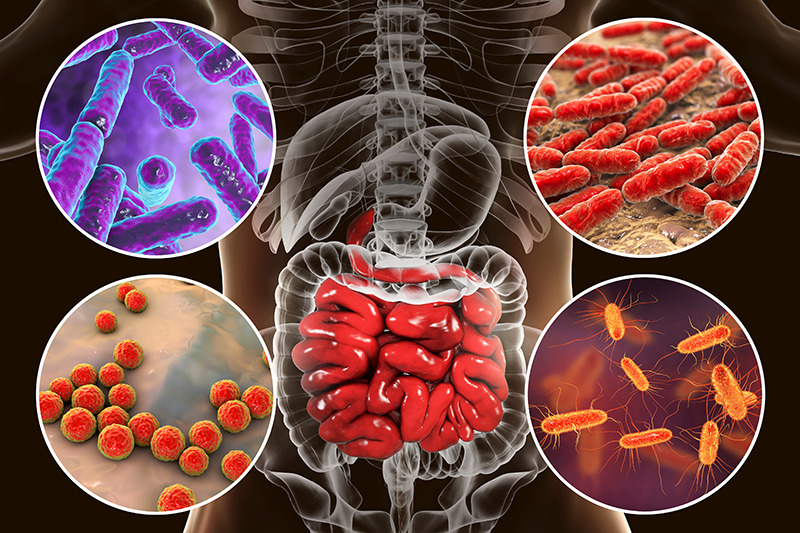"Bad" Gut Microbiome Linked To Polycystic Ovary Syndrome And Obesity In Teenagers
Source: Thailand Medical News Jan 25, 2020 5 years, 3 months, 1 day, 6 hours, 14 minutes ago
According to a new research by medical professionals from the Children’s Hospital Colorado in Aurora,
teenagers with
obesity and
polycystic ovary syndrome (
PCOS) have more “
unhealthy or
bad ” gut bacteria, suggesting the
microbiome may play a role in the disorder.

The research findings was published in the Endocrine Society’s
Journal of Clinical Endocrinology & Metabolism.
Polycystic ovary syndrome or
PCOS is complicated endocrine disorder affecting 6 percent to 18 percent of women of reproductive age and work in adult women indicates that changes in bacteria be involved. The hormone disorder is characterized by elevated testosterone levels in the blood that cause acne, excess hair growth and irregular periods.
Teenagers with p
olycystic ovary syndrome often also struggle with
obesity and have a higher risk for type 2 diabetes, infertility, and depression.
The study’s corresponding author, Dr Melanie Cree Green, M.D., Ph.D., of Children’s Hospital Colorado in Aurora told
Thailand Medical News, “We found that in adolescents with p
olycystic ovary syndrome and
obesity, the bacterial profile (
microbiome) from stool has more ‘
unhealthy’ bacteria compared to
teenagers without
PCOS. The
unhealthy bacteria related to higher testosterone concentrations and markers of metabolic complications.”
The medical researchers studied 58 teens with
obesity and found that girls with p
olycystic ovary syndrome have an altered gut
microbiome compared to those without the condition. These girls had more “
unhealthy” bacteria in their stool which was related to higher testosterone levels and other markers of metabolic syndrome, such as higher blood pressure, liver inflammation and plasma triglycerides.
Dr Green added, “The gut
microbiome may play a role in p
olycystic ovary syndrome and its related metabolic complications, and these changes can be found in teenagers who are early in the course of the condition.”
Reference : Jobira et al. (2020) Obese adolescents with PCOS have altered biodiversity and relative abundance in gastrointestinal microbiota. Journal of Clinical Endocrinology & Metabolism. DOI: https://doi.org/10.1210/clinem/dgz263
